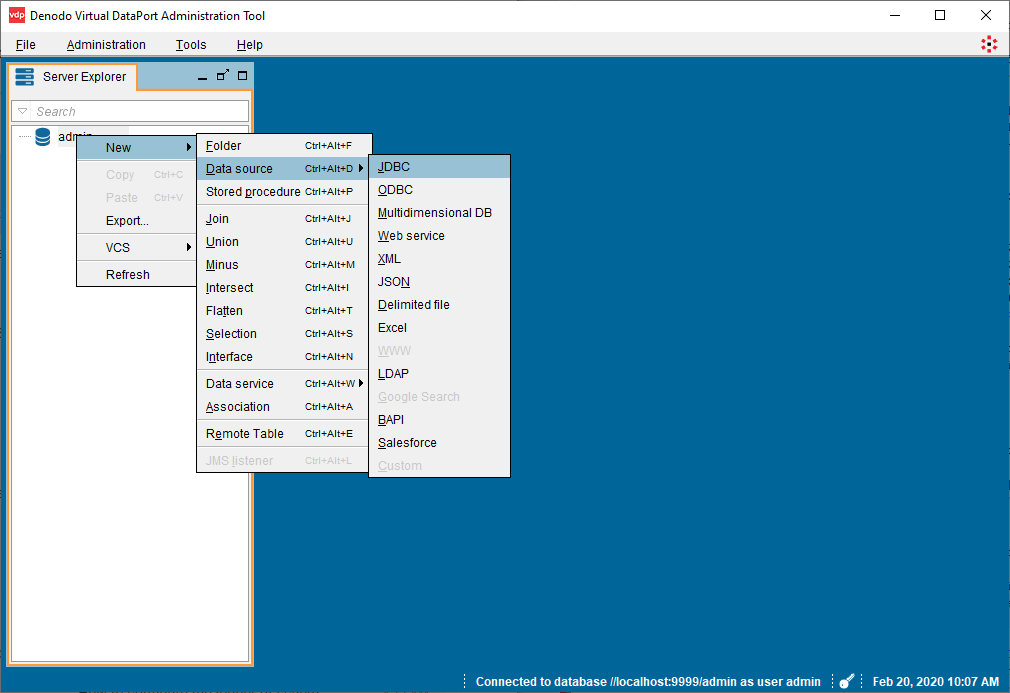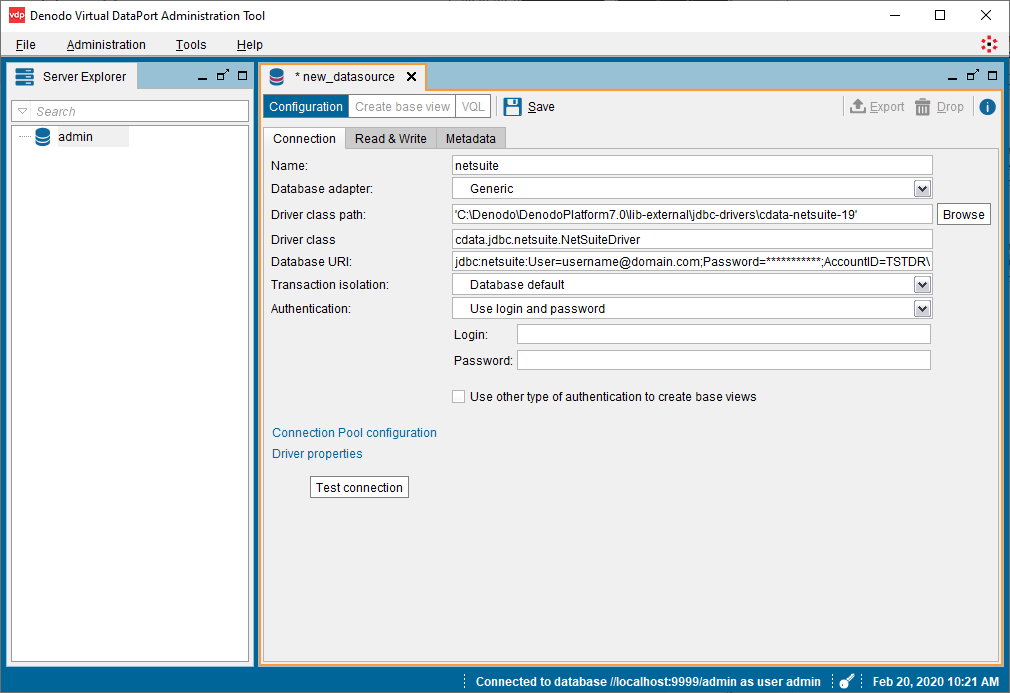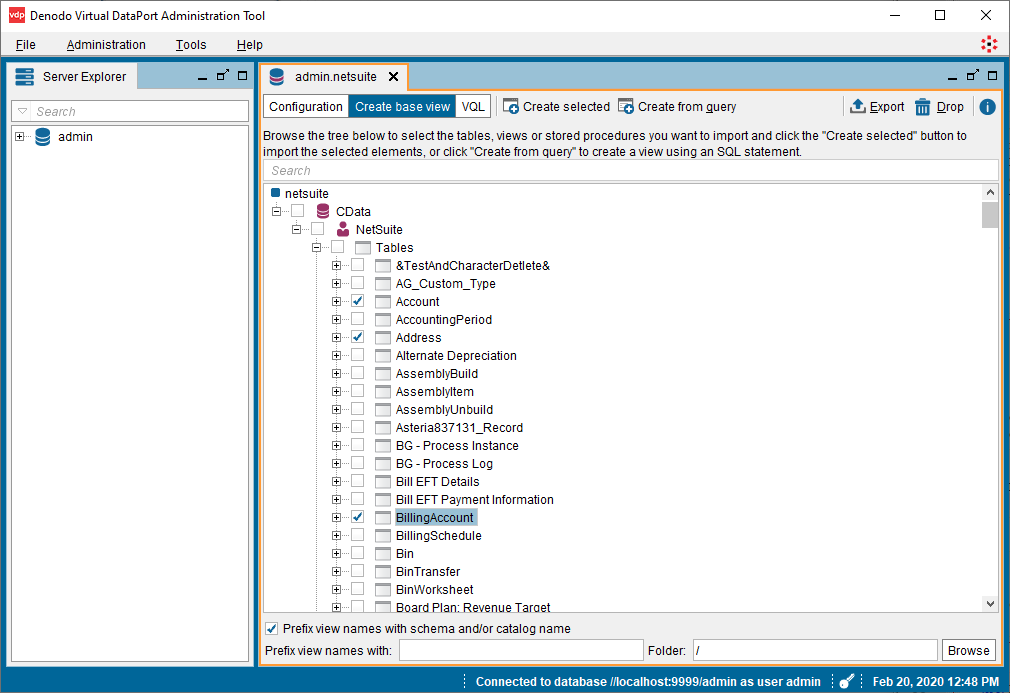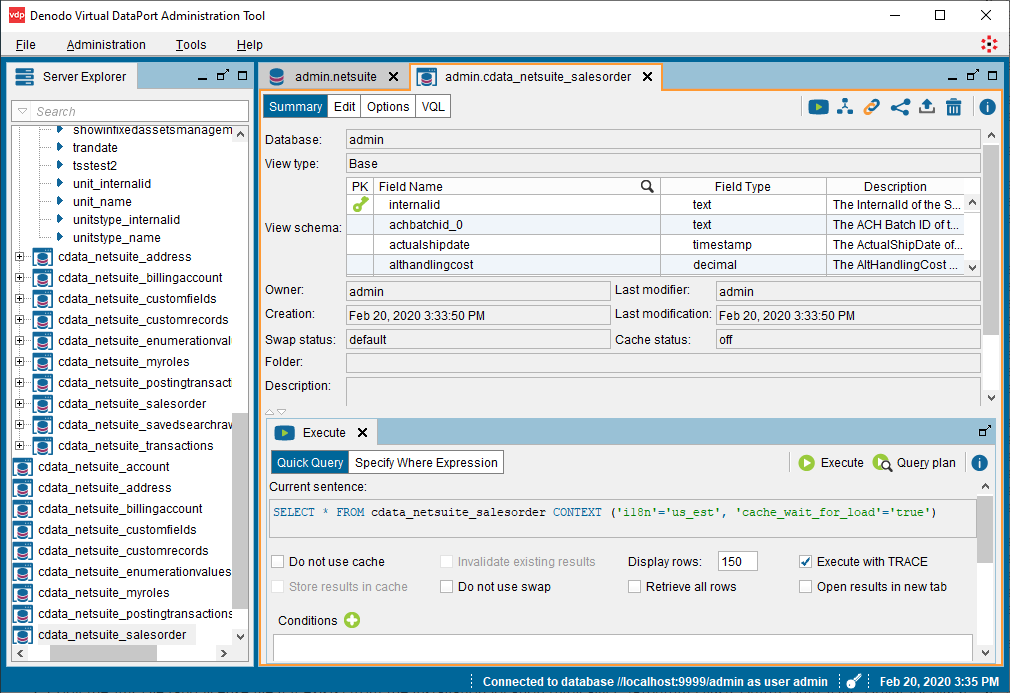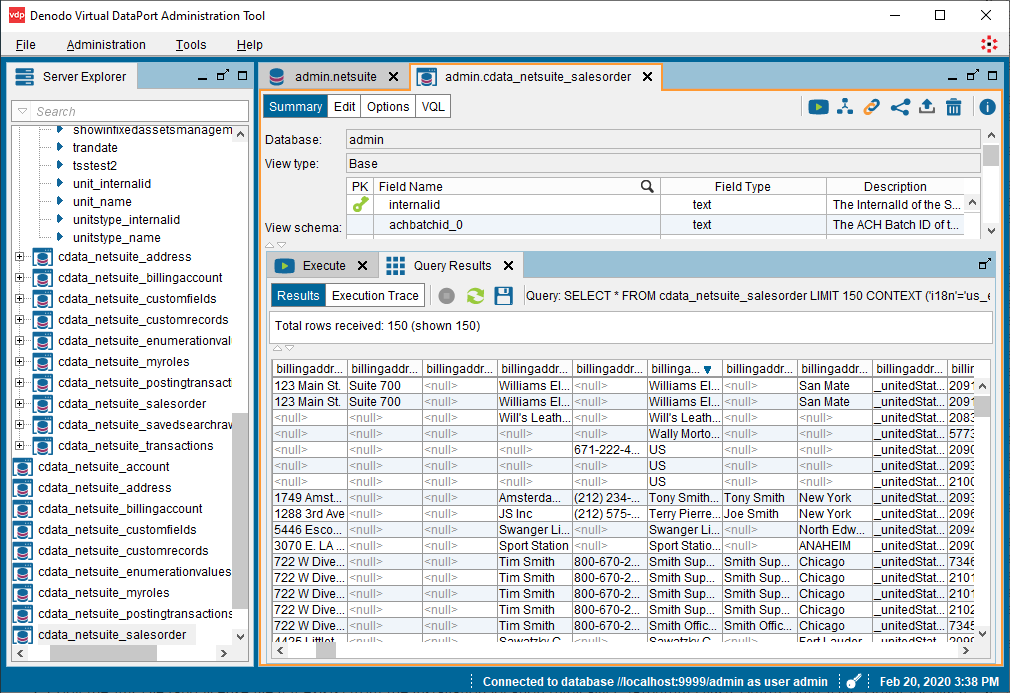Discover how a bimodal integration strategy can address the major data management challenges facing your organization today.
Get the Report →Connect to HCL Domino Data in the Denodo Platform
Use CData driver technologies to create a virtual data source for HCL Domino data in the Denodo Virtual DataPort Administrator.
Denodo Platform is a data virtualization product providing a single point of contact for enterprise database data. When paired with the CData JDBC Driver for HCL Domino, Denodo users can work with live HCL Domino data alongside other enterprise data sources. This article walks through creating a virtual data source for HCL Domino in the Denodo Virtual DataPort Administrator.
With built-in optimized data processing, the CData JDBC Driver offers unmatched performance for interacting with live HCL Domino data. When you issue complex SQL queries to HCL Domino, the driver pushes supported SQL operations, like filters and aggregations, directly to HCL Domino and utilizes the embedded SQL engine to process unsupported operations client-side (often SQL functions and JOIN operations). Its built-in dynamic metadata querying allows you to work with and analyze HCL Domino data using native data types.
Create the HCL Domino Virtual Port
To connect to live HCL Domino data from Denodo, you need to copy the JDBC Driver JAR file to the external library directory for Denodo and create a new JDBC Data Source from the Virtual DataPort Administrator tool.
- Download the CData JDBC Driver for HCL Domino installer, unzip the package, and run the JAR file to install the driver.
- Copy the JAR File (and license file if it exists) from the installation location (typically C:\Program Files\CData\CData JDBC Driver for HCL Domino\lib\) to the Denodo external library directory (C:\Denodo\Denodo Platform\lib-external\jdbc-drivers\cdata-domino-19).
- Open the Denodo Virtual DataPort Administrator tool and navigate to the Server Explorer tab.
- Right-click "admin" and select New -> Data source -> JDBC.
![Creating a new JDBC data source.]()
- Configure the JDBC Connection:
- Name: your choice, e.g.: domino
- Database adapter: Generic
- Driver class path: C:\Denodo\Denodo Platform\lib-external\jdbc-drivers\cdata-domino-19
- Driver class: cdata.jdbc.domino.DominoDriver
Database URI: Set this to a JDBC URL using the necessary connection properties. For example,
jdbc:domino:Server=https://domino.corp.com;Database=names.nsf;Port=3002;SSLClientCertType=PEMKEY_FILE;SSLClientCert=full_path_of_certificate.pem;SSLServerCert=*
![Configuring the JDBC connection (NetSuite is shown).]()
Information on creating the Database URI follows:
Built-In Connection String Designer
For assistance in constructing the JDBC URL, use the connection string designer built into the HCL Domino JDBC Driver. Either double-click the JAR file or execute the jar file from the command-line.
java -jar cdata.jdbc.domino.jarFill in the connection properties and copy the connection string to the clipboard.
Prerequisites
The connector requires the Proton component to be installed. Normally, Proton is distributed as part of the AppDev pack. See the HCL documentation for instructions on acquiring and installing Proton or the AppDev pack.
Once the Proton service is installed and running, you will also need to create a user account and download its Internet certificate. This certificate can be used to set the connector certificate connection properties.
Authenticating to Domino
- Server: The name or IP address of the server running Domino with the Proton service.
- Port: The port number that the Proton service is listening on.
- Database: The name of the database file, including the .nsf extension.
- SSLClientCertType: This must match the format of the certificate file. Typically this will be either PEMKEY_FILE for .pem certificates or PFXFILE for .pfx certificates.
- SSLClientCert: The path to the certificate file.
- SSLServerCert: This can be set to (*) if you trust the server. This is usually the case, but if you want to perform SSL validation, you may provide a certificate or thumbprint instead. See the documentation for SSLServerCert for details.
Additional Server Configuration
The connector supports querying Domino views if any are defined. Before views can be queried by the connector they must be registered with the design catalog.
Please refer to the Catalog Administration section of the AppDev pack documentation for details on how to do this.
![Using the built-in connection string designer to generate a JDBC URL (Salesforce is shown.)]()
- Click the "Test connection" button to confirm the configuration and click Save.
View HCL Domino Data in the VirtualPort Administrator Tool
After creating the data source, you can create a base view of HCL Domino data for use in the Denodo Platform.
- Click the "Create base view" button in the newly created VirtualPort (admin.Domino).
- Expand the object tree and select the objects (tables) you wish to import.
![Selecting objects to import (NetSuite is shown).]()
- Click the "Create selected" button to create views of the HCL Domino data.
Optional: Click "Create associations from foreign keys" to define relationships between the objects. - With the view(s) created, navigate to a table (cdata_domino_byname) in the Server Explorer and double-click the selected table.
- In the new tab, click "Execution panel" to open a query panel.
- Customize the query in the "Execute" tab or use the default:
SELECT * FROM cdata_domino_byname CONTEXT ('i18n'='us_est', 'cache_wait_for_load'='true')![Configuring the query to view the data.]()
- Click Execute to view the data.
![Viewing the data.]()
With the base view created, you can now work with live HCL Domino data like you would any other data source in Denodo Platform, for example, querying HCL Domino in the Denodo Data Catalog.
Download a free, 30-day trial of the CData JDBC Driver for HCL Domino and start working with your live HCL Domino data in Denodo Platform. Reach out to our Support Team if you have any questions.






